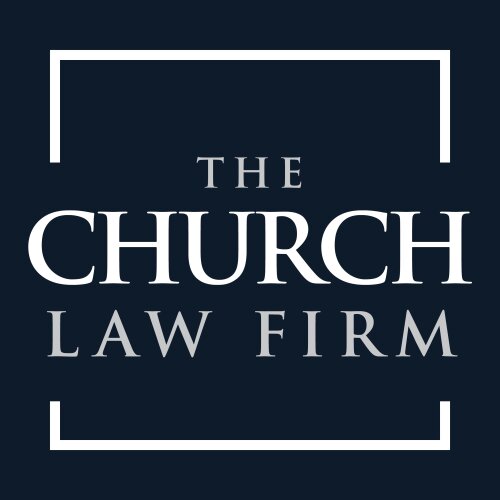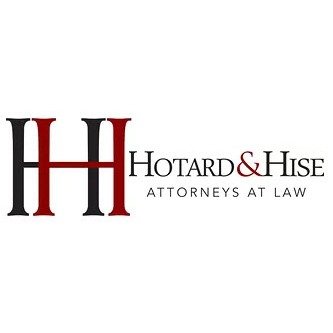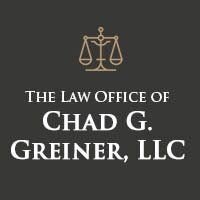Best Criminal Defense Lawyers in Georgia
Share your needs with us, get contacted by law firms.
Free. Takes 2 min.
Or refine your search by selecting a city:
List of the best lawyers in Georgia, United States
United States Criminal Defense Legal Questions answered by Lawyers
Browse our 1 legal question about Criminal Defense in United States and read the lawyer answers, or ask your own questions for free.
- Do you prosecute local Philippina for violating ESTAFA laws
- I was scammed by a lady presenting herself as my girlfriend.
-
Lawyer answer by mohammad mehdi ghanbari
HelloBased on the laws of the Philippines, you can file a criminal complaint against the person who scammed you for violating the laws on Estafa (swindling). Estafa is a criminal offense that involves defrauding another person of money or property...
Read full answer
United States Criminal Defense Legal Articles
Browse our 3 legal articles about Criminal Defense in United States written by expert lawyers.
- Clearing Your Record in Texas: 2026 Expunction Rules for US
- Criminal defense in the United States protects your rights from the moment of investigation through trial, sentencing, and appeals, and the stakes can include jail, fines, immigration consequences, and your future job prospects. You always have key constitutional rights: to remain silent, to have a lawyer, to be free from... Read more →
- Texas DWI Laws 2026 First Offense Penalties
- If you are arrested in the United States, you have the right to remain silent, the right to a lawyer, and the right to a fair trial - use those rights from the start. Criminal cases move quickly at the beginning: after arrest come booking, bail, your first court appearance,... Read more →
- Texas Bail Reform 2026: Why Bonds Are Harder to Secure in US
- If your loved one has just been arrested, move fast: confirm the exact charges, find out the bond amount, and contact a criminal defense lawyer immediately. In the United States, you have core rights at every stage - to remain silent, to an attorney, to reasonable bail (subject to exceptions),... Read more →
About Criminal Defense Law in Georgia, United States
Criminal defense law in Georgia focuses on protecting the rights of individuals accused of committing crimes within the state. Georgia's criminal justice system is governed by both state and federal law, with state laws outlined in the Georgia Code. Criminal charges can range from minor offenses such as misdemeanors to severe felonies that may carry lengthy prison sentences. The role of a criminal defense attorney is to represent, advise, and defend the accused at every stage of the legal process. This may include bail hearings, plea negotiations, trials, and appeals. Understanding your legal rights and options is crucial if you are facing criminal charges in Georgia.
Why You May Need a Lawyer
Legal representation in criminal defense matters can make a critical difference in the outcome of your case. Some common situations where you may need a criminal defense lawyer in Georgia include:
- Arrest for driving under the influence (DUI) or driving while intoxicated (DWI)
- Being charged with drug-related offenses, such as possession or distribution
- Allegations of assault, battery, or domestic violence
- Theft, burglary, or robbery charges
- White collar crimes, such as fraud or embezzlement
- Probation or parole violations
- Facing juvenile criminal charges
- Questioning or investigation by law enforcement
- Receiving a summons to appear in criminal court
- Appealing a criminal conviction or sentence
Without expert guidance, a person may inadvertently waive rights, accept an unfavorable plea deal, or face maximum penalties. An experienced lawyer knows how to assess the strengths and weaknesses of the prosecution's case, negotiate strategically, and advocate effectively at trial.
Local Laws Overview
Georgia has its own set of criminal statutes, procedures, and sentencing guidelines that distinguish it from other states. Some important features of criminal defense law in Georgia include:
- Classification of Crimes: Offenses are classified as misdemeanors (punishable by up to 12 months in jail) or felonies (punishable by more than one year in prison). Felonies are further categorized by severity, affecting possible sentences.
- First Offender Act: Georgia's First Offender Act may allow certain first-time offenders to avoid a conviction on their record if they complete their sentence successfully.
- Probation and Parole: Georgia grants probation and parole in many cases, but violations can trigger severe consequences, including serving original or additional jail time.
- Mandatory Minimum Sentences: For certain offenses, such as serious violent felonies or repeat DUI convictions, Georgia law imposes mandatory minimum prison terms that judges cannot reduce.
- Stand Your Ground Laws: Georgia law permits individuals to use force in self-defense without a duty to retreat under particular circumstances.
- Bail and Bond: Procedures for bail or bond hearings vary by county, and those denied bail may be detained without release during their case.
- Expungement/Record Restriction: Georgia allows for the restriction of criminal records (expungement) in certain cases, which can help individuals move on from past charges.
Every criminal case in Georgia is unique, and local practices or court rules may vary by jurisdiction.
Frequently Asked Questions
What should I do if I am arrested in Georgia?
If you are arrested, remain calm, exercise your right to remain silent, and request an attorney before answering any questions. Do not resist arrest or attempt to explain yourself to law enforcement.
How do misdemeanors and felonies differ in Georgia?
Misdemeanors are less serious crimes punishable by up to 12 months in jail and fines up to $1,000 (or higher for certain offenses). Felonies are more serious offenses, with sentences ranging from one year to life imprisonment, and significant fines.
What is the First Offender Act, and can I use it?
The First Offender Act allows some first-time offenders to avoid a conviction record if they complete probation or other sentence requirements. Not all offenses or individuals are eligible and a lawyer can advise you on your eligibility.
Can a criminal record be expunged in Georgia?
Georgia offers "record restriction," commonly called expungement, in certain situations where charges were dismissed, not prosecuted, or you were acquitted. This process has specific requirements and is not automatic.
What are my rights if I am questioned by police in Georgia?
You have the right to remain silent and the right to an attorney. You do not have to answer police questions without your lawyer. Always be respectful and ask for legal representation before speaking.
How does bail work in Georgia?
After arrest, you may be eligible for bail, which allows you to be released from jail while your case is pending. Bail amounts and procedures can vary by county. For serious crimes, bail may be denied.
What are the consequences of a conviction in Georgia?
Consequences can include jail or prison time, fines, probation, loss of civil rights (such as voting or firearm ownership), and difficulties obtaining employment, housing, or professional licenses.
Are there alternatives to jail in Georgia?
Depending on the nature of the offense and your criminal history, alternatives such as probation, diversion programs, or community service may be available. Your attorney can explain your options.
Should I accept a plea bargain?
Plea bargains can sometimes reduce charges or penalties, but you should never accept a plea without fully understanding the consequences. Consult with a defense attorney before making any decisions.
How do I find the right criminal defense attorney in Georgia?
Look for an attorney who specializes in criminal law, has experience in local courts, and offers a free or low-cost consultation to discuss your case and legal options.
Additional Resources
If you need more information or assistance, the following resources may be helpful:
- Georgia Public Defender Council - Provides legal representation for eligible individuals who cannot afford to hire an attorney
- State Bar of Georgia - Offers a lawyer referral service and consumer resources
- Georgia Legal Services Program - Offers assistance to low-income individuals with certain legal matters
- County-specific Public Defender Offices and local court websites for your region
- Nonprofit organizations focusing on criminal justice, such as the Southern Center for Human Rights
- Georgia Department of Corrections and other state agencies for information on correctional processes
Next Steps
If you or a loved one is facing criminal charges in Georgia, taking prompt action is critical. Here is how to proceed:
- Do not discuss your case with anyone except your attorney
- Contact a qualified criminal defense lawyer as soon as possible to protect your rights and begin building your defense
- Gather any documents and information related to your case, such as arrest paperwork and court dates
- Attend all court hearings and required meetings
- Follow your attorney's advice and keep all communication confidential
- If eligible, inquire about programs or resources that might help, such as public defender services
No matter the charge, experienced legal representation can help you understand your rights, options, and best path forward in Georgia's criminal justice system.
Lawzana helps you find the best lawyers and law firms in Georgia through a curated and pre-screened list of qualified legal professionals. Our platform offers rankings and detailed profiles of attorneys and law firms, allowing you to compare based on practice areas, including Criminal Defense, experience, and client feedback.
Each profile includes a description of the firm's areas of practice, client reviews, team members and partners, year of establishment, spoken languages, office locations, contact information, social media presence, and any published articles or resources. Most firms on our platform speak English and are experienced in both local and international legal matters.
Get a quote from top-rated law firms in Georgia, United States — quickly, securely, and without unnecessary hassle.
Disclaimer:
The information provided on this page is for general informational purposes only and does not constitute legal advice. While we strive to ensure the accuracy and relevance of the content, legal information may change over time, and interpretations of the law can vary. You should always consult with a qualified legal professional for advice specific to your situation.
We disclaim all liability for actions taken or not taken based on the content of this page. If you believe any information is incorrect or outdated, please contact us, and we will review and update it where appropriate.
Browse criminal defense law firms by service in Georgia, United States
Georgia, United States Attorneys in related practice areas.
Browse criminal defense law firms by city in Georgia
Refine your search by selecting a city.















